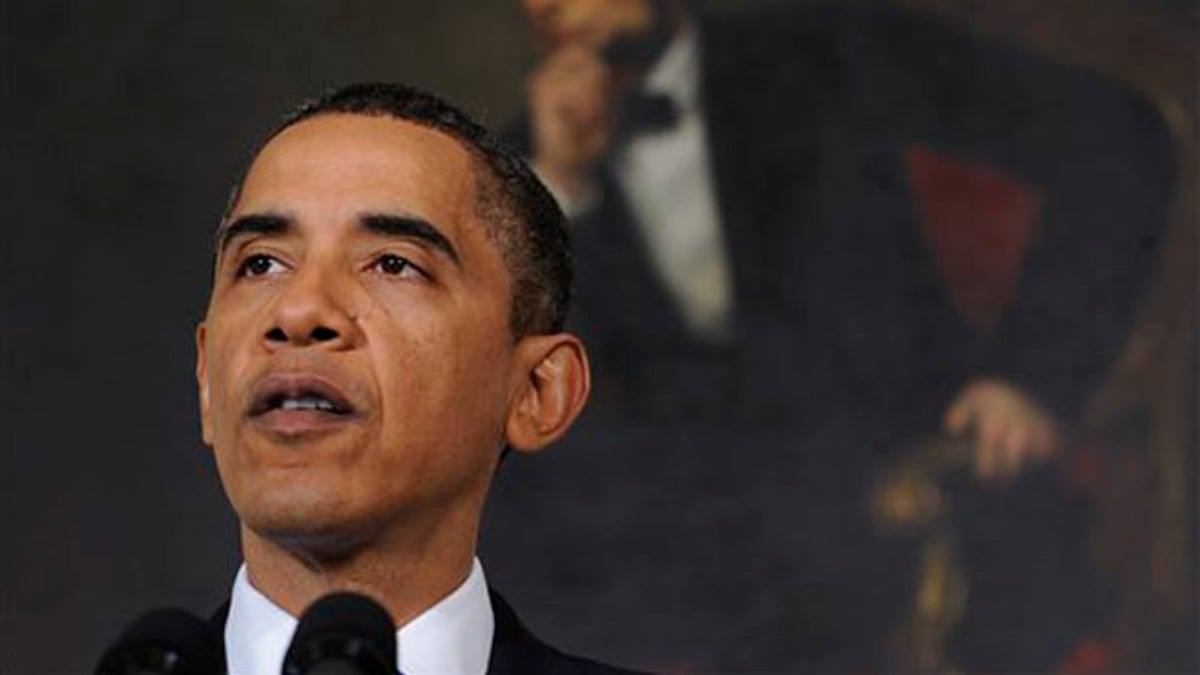
President Obama speaks in the State Dining Room of the White House May 5 during a bill-signing ceremony. (AP Photo)
President Obama will veto any additional spending in the new health care law he heralded if it is not offset elsewhere, the Office of Management and Budget vowed late Tuesday.
The statement came after the Congressional Budget Office -- the agency responsible for evaluating the cost of legislation -- released a new analysis earlier in the day that suggested that several items included in the law did not have a price tag on them.
That spending includes the unknown costs of implementation, for instance, the amount it takes for the Internal Revenue Service to administer subsidies for health insurance and collect penalties from individuals and businesses who fail to sign up for insurance.
While the Congressional Budget Office noted that several of the unnamed costs of the bill are found in previously passed law, about $86 billion worth, 52 grants and programs in the law have no discretionary spending estimates attached to them.
Ken Baer, communications director for the OMB, insists none of that money -- if Congress decides to fund those programs -- will come from deficit spending.
"If these authorizations are funded, they must be offset somewhere else in the discretionary budget. The president has called for a non-security discretionary spending freeze, and he will enforce that with his veto pen," Baer said.
The additional costs were not reflected in earlier estimates by the budget office, although Republican lawmakers strenuously argued that they should have been. Part of the reason is technical: the additional spending is not mandatory, leaving Congress with discretion to provide the funds in follow-on legislation -- or not.
"If Congress were to approve all of this new discretionary funding authorized in the health care bill, almost all of the administration's highly touted savings would be made null and void," said Jennifer Hing, spokeswoman for Republicans on the House Appropriations Committee.
The CBO had earlier estimated the total cost of the health care bill at $938 billion for mandatory spending, which would reduce the deficit by $143 billion, part of which is due to unrelated savings in student loan programs.
But the discretionary spending in the bill has yet to be appropriated.
"Yesterday's report is a prediction of what Congress might vote on each year on how much to spend to administer the bill," said Rep. Rob Andrews, D-N.J. "That's opposed to a situation where money will be automatically spent whether there's a vote or not."
Baer added that the Affordable Care Act will "reduce the deficit by more than $100 billion in the first decade, and that will not change unless Congress acts to change it."
Fox News' Major Garrett and The Associated Press contributed to this report.





















